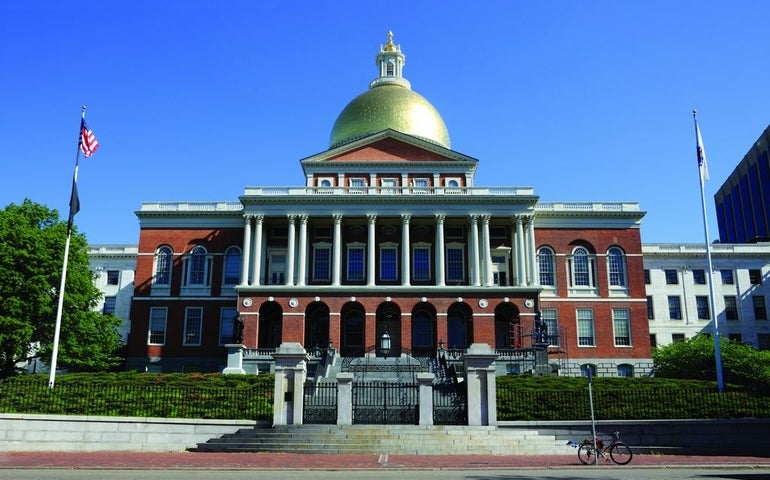The Massachusetts economy contracted slightly in the third quarter, local economists reported Wednesday, the same day that the federal government reported the U.S. economy grew 1.9 percent in the quarter that ended Sept. 30.
Economists at MassBenchmarks reported that Massachusetts gross domestic product declined 0.2 percent in the third quarter. In addition, the state economy is expected to barely grow, at an annualized rate of 0.1 percent, over the six-month period ending in March 2020, according to the group.
While forecasting “virtually no growth” in the state economy, economists addressed the big question: Is this a recession?
“The modest contraction in state economic activity in the third quarter does not appear to indicate the beginning of a recession, but rather reflects capacity limits that the state is bumping up against,” the economists reported. “These include the barriers to labor force growth presented by an aging population as the departure of baby boomers from the regional workforce continues.”
Analysts cautioned that the underlying data behind their estimates can be “statistically volatile,” and noted that despite contractions during the first and fourth quarters of 2016, the state economy grew by 1.7 percent in 2016 and 2.2 percent in 2017.
However, the aging workforce here and the appeal of lower cost states to young workers loom as challenges in Massachusetts.
“State economic growth is slowing as the aging of the workforce exerts a drag on our growth, and since Massachusetts has an older population than the nation, the drag is greater here,” said Northeastern University economics professor Alan Clayton-Matthews, senior contributing editor of MassBenchmarks, which is published by the University of Massachusetts Donahue Institute in cooperation with the Federal Reserve Bank of Boston.
In mid-October, state officials reported a 2.9 percent unemployment rate for September in Massachusetts. Officials reported that total jobs in the state were up by more than 286,000 beyond the previous high level in February 2001. Employers have added more than 35,000 jobs since last September, officials said, and jobs are up by 350,000 beyond the April 2008 pre-recession peak.
The latest signals about the economy come as state government officials are poised to embark on a $1.5 billion, seven-year education investment plan and a year after Beacon Hill adopted a sweeping paid family and medical leave benefits law, which includes a new payroll tax.
While boosting state spending, weighing a new $2 billion income surtax on the state’s wealthiest households, and moving ahead with plans to spend surplus tax revenues, state officials are also on track to increase the state savings account balance above $3 billion, which officials hope will help preserve services if tax collections falter.
The data cited Wednesday points to a state economy that is decelerating. MassBenchmarks’ revised estimate of second quarter growth in Massachusetts was 1 percent, down from a 2.7 percent state economic growth rate in the first quarter, according to a U.S. Bureau of Economic Analysis (BEA) estimate.
The 1.9 percent estimate of U.S. GDP growth in the third quarter is down from a 2 percent second quarter growth rate and a 3.1 percent first quarter growth rate.
While still on the rise, payroll growth rates have been on a downward trend in Massachusetts and nationally since 2016, and MassBenchmarks also reported that wage and salary income declined at a 4.3 percent annual rate in Massachusetts in the third quarter, compared to a 4.4 percent increase nationally.
“While the state’s and nation’s economies as measured by GDP have grown at roughly the same pace during our decade long expansion, growth has been slower in the Commonwealth in five of the last six quarters,” according to MassBenchmarks.
A BEA report released Wednesday said consumer spending and government expenditures helped the nation’s gross domestic product rise at an annual rate of 1.9 percent in the third quarter, just a smidge below the second quarter growth rate of 2 percent.
The bureau also reported that real disposable personal income increased 2.9 percent in the third quarter, compared to a 2.4 percent increase in the second quarter. The personal saving rate – saving as a percentage of disposable income – was 8.1 percent in the third quarter and 8 percent in the second quarter.
Last week, Massachusetts slipped to 36th among states in a business tax climate index released by The Tax Foundation, which promotes lower tax burdens, raising questions about the state’s business investment appeal.

